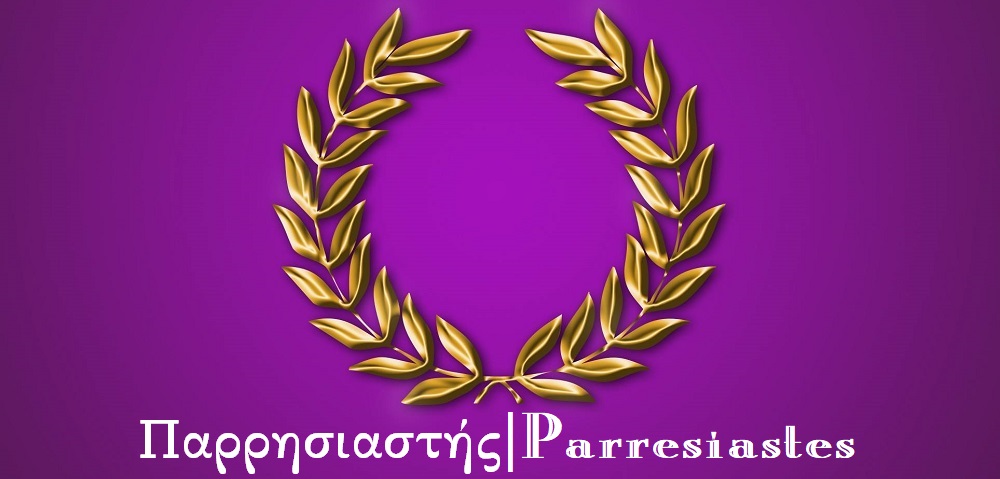The terms “Autochthonous,” “Indigenous” and “Native” have been used and are still used in literature and in the academic discourse to designate Hellenic culture, ancient and contemporary. Furthermore they are used to address single components of Hellenic culture such as religion (“polytheism”), music, language or architectural style. They are also self-chosen terms by ethnic Hellenes. However, some individuals outside the scientific community, especially on the internet, are questioning the validity of these terms when it comes to Hellenes. In this context, the term “ethnic” or “ethnic Hellenic” is also seen as problematic by people who are unaware of its history and etymology.
The objections raised can only be explained by an unfamiliarity with the meanings of the terms used for describing those ethno-cultural groups whose members maintain the original language, cults and customs of their countries or countries of origin.
This article is intended to set things right and explode erroneous assertions, both regarding the aforementioned terms as well as Hellenic culture itself. To this end, quotations from academic sources concerning various periods and aspects of Hellenic culture were selected to demonstrate the legitimate use of these terms in regards to Hellenism. The focus is on the legitimate use of terms only.
As a result of this selection, it becomes apparent that the misgivings in this respect are empirically unfounded. All the following citations are from books written and edited by non-Greek authors. Citations from Greek authors have been omitted only to avoid anything which could arouse the suspicion of a biased attitude. This decision is in no way intended to depreciate the academic work and contribution of Greek scholars.
All terms are treated individually and in alphabetical order. The quotations are listed in chronological order. Emphasis was added by me.
AUTOCHTHONOUS
“The autochthonous
Greek religion had been successful for centuries [...].”
Ina Wunn, Davina Grojnowski: Religious Speciation: How Religions Evolve, Berlin: Springer, 2019, p. 155.
“According to the
legend of Perseus—a real autochthonous Greek hero [...].”
Adriana
Cavarero: Horrorism: Naming Contemporary Violence, New York: Columbia
University Press, 2009, p. 7-8.
“The autochthonous Greek population on the two Turkish islands in the Aegean was not
to be subjected to compulsory exchange.”
Ferenc A. Váli: Bridge across the Bosporus: The Foreign Policy of Turkey, Baltimore/London: Johns Hopkins University Press, 1971, p. 260.
ETHNIC
“Herodotus emphasized the
last three factors – ancestry myth, history, and culture – in his Histories as
the definition of ethnicity, creating the foundations for Hellenic ethnic self-determination for
all Hellenes overseas or in Aegean poleis.”
Rachel J.
Mittelman: Macedonian, Greek, or Egyptian? Navigating the royal additive
identities of Ptolemy I Soter and Ptolemy II Philadelphus, in: Aaron W. Irvin (ed.): Community and
Identity at the Edges of the Classical World, New York: Wiley
Blackwell, 2021, p. 120.
“Florin
Curta notes that Julian's ethnic Hellenism derives from his Neoplatonist
interpretation of ethnic diversity [...].”
Ari Finkelstein: The
Specter of the Jews. Emperor Julian and the Rhetoric of Ethnicity in Syrian
Antioch, Oakland: University of California Press, 2018, p. 19.
“[...] either ethnic
Hellenes who were losing their language or Central Asians not altogether
fluent in Greek.”
Frank L. Holt: Lost World of the Golden King: In Search of Ancient Afghanistan, Berkeley:
University of California Press, 2012, p. 181.
INDIGENOUS
“It compares Cassandra's prophetic function with
that of the indigenous Greek Pythia [...].”
Emily Pillinger: Cassandra and the
Poetics of Prophecy, Cambridge: Cambridge University Press, 2019, p. 65.
“The style and the motifs overall are
determinedly late antique and Hellenistic: a fully indigenous
Hellenism.”
Aziz al-Azmeh: The Emergence of Islam
in Late Antiquity: Allah and His People, Cambridge: Cambridge University
Press, 2014, p. 507.
“[...] as resurgent Turkish forces under Kemal Ataturk pushed the Greek
forces out of Asia Minor in September 1921 and, along with them, the indigenous
Greek populations.”
Keith R. Legg, John M. Roberts: Modern
Greece: A Civilization on the Periphery, London: Westview Press, 1997, p.
36.
“This period of Greek history is known as the
Hellenistic Age (from the spread of indigenous
Hellenic culture over a large part of the ancient world) [...].”
R. J. Hollingdale: Western Philosophy:
An Introduction, New York: Taplinger Pub. Co., 1979, p. 90.
NATIVE
“[...] whose
protagonist is a romantic idealist devoted to the regeneration of his native Hellenic culture, that most fascinated the
young Nietzsche.”
Graham Parker: Introduction, in:
Friedrich Nietzsche: Thus Spoke Zarathustra, trans. Graham Parker,
Oxford: Oxford University Press, 2008, p. xii.
“Posidon, a native
Greek god—though not originally of the sea [...].”
Michael Grant: The Myths of the Greeks
and Romans, New York: Penguin Books, 1995, p. 57.
“The term Hellenistic, therefore, properly refers
to an amalgam of Greek and oriental customs and motifs which contrasts with the
earlier native Hellenism of the fifth century.”
Finley Hooper: Greek Realities: Life
and Thought in Ancient Greece, Detroit: Wayne State University Press, 1967, p. 422.

